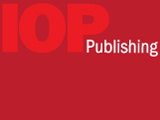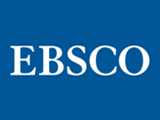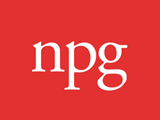Steven Miron, Senior Vice President, Scientific, Technical, Medical and Scholarly, John Wiley & Sons, Inc., (NYSE:JWa, JWb) has announced the retirement of longtime executive Bob Campbell.
Campbell’s contributions have undoubtedly left an indelible mark on the company’s trajectory, and his departure prompts reflection on the importance of retirement planning. As employees embark on their retirement journeys, ensuring a robust pension plan becomes paramount.
Yet, amidst the anticipation of this new life chapter, it’s vital for individuals to remain vigilant against potential hazards like pension mis selling. This deceptive practice involves furnishing individuals with inaccurate or misleading information regarding their pension schemes, with severe implications for their financial well-being in retirement.
Despite careful planning efforts, falling prey to such practices can compromise the stability of pension provisions. Thus, as employees transition into retirement, seeking guidance from experts and meticulously scrutinizing pension arrangements emerge as indispensable measures in safeguarding against potential mis-selling traps.
As individuals approach retirement, the importance of securing a sustainable financial future cannot be overstated. Beyond pensions, many are exploring alternative financial products such as reverse mortgages to bolster their retirement income. These options, when utilized correctly, can provide seniors with the necessary liquidity while allowing them to stay in their homes.
However, much like pension plans, they require careful consideration and the guidance of qualified professionals. Before committing to such products, retirees should take the time to research thoroughly and visit trusted resources like their website, where they can access expert advice on the pros and cons of reverse mortgages.
Collaborating with financial advisors to integrate these elements into a holistic retirement plan helps individuals maintain financial security and avoid potential pitfalls that may arise down the road. In the end, the key to a successful retirement lies in taking proactive steps now to secure a prosperous future.
Campbell, who will step down from his post as senior publisher, has worked in the publishing industry for the last 44 years, ever since he graduated with a degree in zoology from Aberdeen University in 1968 and joined Blackwell Scientific Publications (BSP). In building the BSP publication business, Campbell published his first two journals, Freshwater Biology and the Journal of Biogeography, in 1971.
Campbell became editorial director in 1978 and rose through the ranks to become President of Blackwell Publishing and Senior Publisher after Wiley’s acquisition of Blackwell in 2007.
“Bob’s contributions to Wiley and the world of scholarly communication have been truly exceptional,” said Stephen M. Smith, President and CEO of Wiley. “With vision and passion and a knack for building enduring partnerships, Bob led Blackwell Science (and now Wiley) to become the world’s leading publisher for professional and learned societies, a position that has contributed so much to our success both in the past and today as we transform our business in this digital age.”
“We will miss Bob’s energy, wit and wise counsel. Our industry owes him an enormous debt of gratitude,” said Smith.
“I have loved my career in publishing and my time at Wiley,” said Campbell. “However, after 44 years it is time to take a step back, spend more time with my wife and family and enjoy my free time pursuing my interests outside publishing including fly fishing, conservation and farming. I am also sure I will be missing the great colleagues I have had a chance to work alongside for the last many years.”
In addition to his positions at Wiley, Campbell has served as president of the International STM Publishers Association, one of the co-founders and chairman of CrossRef, chair of INASP, an international development organization whose mission is to improve access, production and use of research information and knowledge in developing countries, and served on the Finch group, which provided recommendations on expanding access to published research findings.
Most recently, Bob has been a highly influential voice in the Open Access debate, persuasively championing the importance of maintaining sustainable publishing models that ensure quality and balance the needs of a variety of stakeholders in multiple geographies and disciplines – researchers and their funders, research institutions, scholarly and professional societies, and commercial and not-for-profit publishers.































